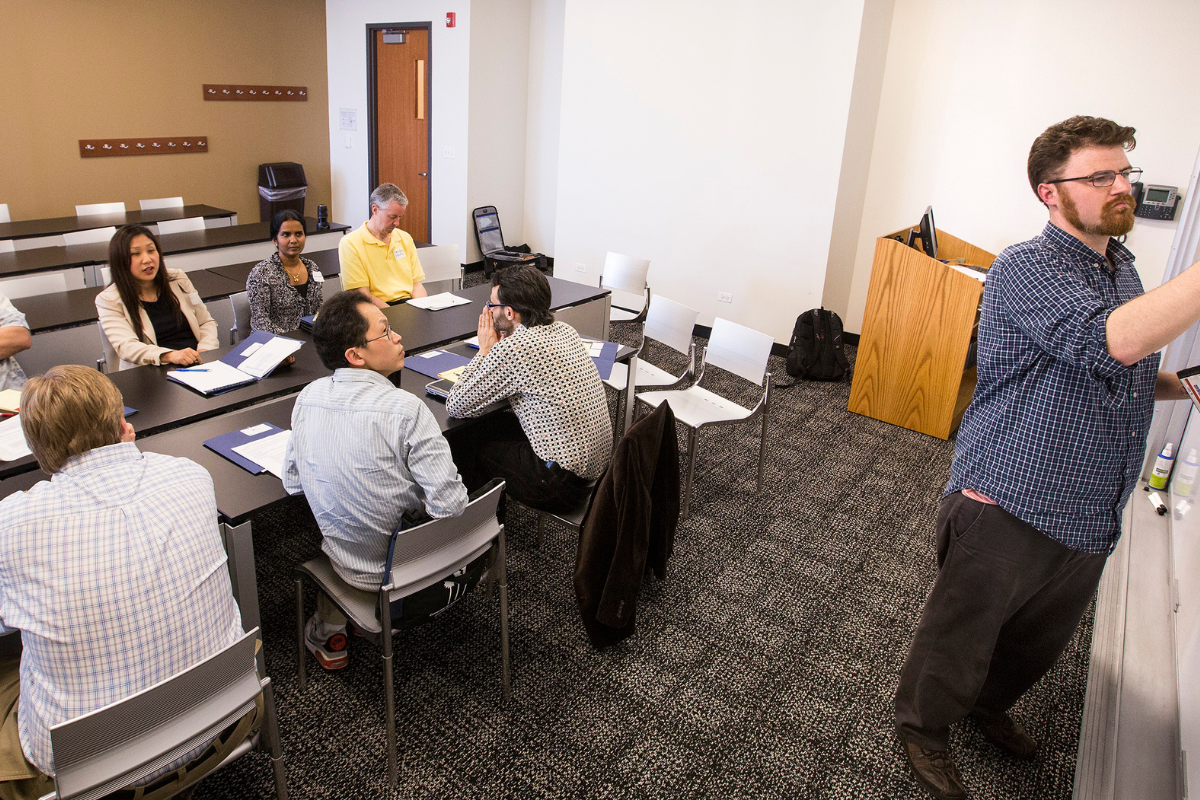 (Photo by Jamie Moncrief/DePaul University)
(Photo by Jamie Moncrief/DePaul University)
For the third consecutive year, DePaul and Rosalind Franklin University are providing funding for AI-driven biomedical research to tackle evolving healthcare challenges — this time with faculty receiving $180,911 in grants. The primary goal of this program is to foster development of new inter-institutional collaborative research projects between DePaul and Rosalind Franklin faculty members that recognize the opportunities and transformational potential of AI in healthcare.
Here are the 2025 recipients:
Gene regulation using AI software platforms
Alexandru Iulian Orhean, assistant professor, and Jacob Furst, professor, both in DePaul's School of Computing, are leading a project that aims to make a significant impact on cancer research and drug development. They will collaborate with Neelam Sharma-Walia, associate professor of microbiology and immunology at RFU.
The project focuses on identifying binding proteins in Kaposi's Sarcoma-associated herpesvirus (KSHV)-related cancers. By leveraging advanced computational techniques, they aim to improve therapeutic efficacy and help bring innovative treatments to the forefront. The project will leverage artificial intelligence to build a software platform to assist with the study and discovery of drugs and treatments.
AI automation for foot posture evaluation to identify injury risk in amputees
Ilyas Ustun, professional lecturer in the School of Computing, and Noah Rosenblatt, associate professor of podiatric medicine and surgery at Rosalind Franklin, are leading a project aimed at improving the lives of lower limb prosthesis users. People who use a prosthesis are at high risk of developing secondary neuromuscular complications in the intact limb, with knee pain and osteoarthritis being among the most reported conditions. Ustun's and Rosenblatt's project seeks to develop a tool to predict the progression of knee osteoarthritis in these individuals.
Using machine learning models, researchers will assess foot images to quantify the foot posture index, a well-established measure of foot alignment. To develop the models, Ustun and Rosenblatt will use images of feet from a diverse cohort of individuals without amputation for training and validation.
Optimizing pharmacy workflow with AI-powered anomaly detection
Sina Ansari, assistant professor and co-director of the MS Business Analytics program in the Driehaus College of Business, and Vahid Alizadeh, assistant professor in the School of Computing, are collaborating on a project to improve the efficiency of community pharmacies with Ateequr Rahman, professor of pharmacy at Rosalind Franklin.
Community pharmacies play a crucial role in healthcare, ensuring safe and efficient medication use. However, increasing workloads and staffing shortages have led to workflow inefficiencies, contributing to delays and medication errors that affect patient safety and care quality. Ansari, Alizadeh and Rahman's project will develop a real-time anomaly detection system to identify and address disruptions in pharmacy workflows.
The proposed AI-powered tool will use machine learning to detect irregularities during prescription processing. By providing real-time alerts for immediate corrections, the system will help improve pharmacy operations, reduce errors and boost patient outcomes.
Learn more about grants at DePaul on the Office of Research Services website.